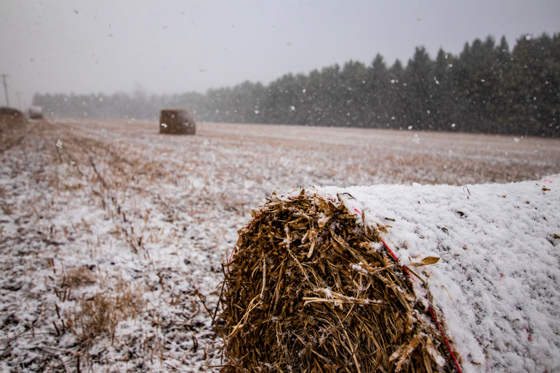Well-defined plan allows farms to respond to challenges
There are many aspects of being a consultant that are both interesting and highly enjoyable. You get to meet a great number of fantastic people who all have something in common … farming … and you get to find out about their families and their businesses.
Another aspect is that you get to ask a lot of questions. In fact, you must ask a lot of questions. The questions are important. It’s through the questioning that you learn about, and gain an understanding of, farmers’ opportunities and successes, their challenges and frustrations and sometimes, their failures.
The actions (the things that need to get done) are relative to what’s being discussed at any given point in time … whether it’s about figuring out how to capitalize on an opportunity or to deal with a challenge. The actions taken are an outcome of the discussions, including the questions, that occur between the farmer and the consultant, when that relationship exists. Without an appropriate depth of ‘understanding’, there is a risk that the actions taken may not result in desired outcomes.
Ultimately, decisions rest with the farmer. And rightly so. It’s the farmer, and not the consultant, who carries the accountability of the decision or decisions being made … whether or not the outcomes were successes or failures. What becomes tricky is when there are no obvious ‘right’ answers.
I’ve observed the benefits that have accrued to farm families through the process of developing and implementing a plan. There are a great many farms that are doing very well financially, but perhaps not necessarily in 2021 because of the drought depending on where the farm is. There are small areas of Western Canada that got the benefit of a couple of timely showers and harvested decent crops.
With that in mind, here’s a question to think about. Does a farm need to have a well-defined plan? ‘Well-defined’ to me means something that is written down, communicated, and evaluated by the owners and managers of the business. Planning helps and planning excels when plans are followed. I think that the reluctance for farm businesses to ‘plan’ is because of a fear that ‘following’ the plans will lock them into something with little flexibility. The reality is that a well-defined plan will better enable businesses to respond to opportunities or challenges as they arise. Simply because management will have gained a deeper understanding of their business through the planning process.
I ask farm families when I talk to them if they have a written plan. I will follow that by asking if they manage to a plan. Frankly, a farm family will derive limited value in developing a plan if the plan is not going to used (actively implemented).
There is more value in the process of developing and writing the plan than there is in the end-product of the actual plan in of itself. However, what is of even greater value lies in the implementation of the plan. Typically, farms without well-defined plans will focus primarily on operations resulting in operationally driven management. That’s not wrong. A well-defined plan will include aspects of changes in how the business is being managed. It’s effecting and sustaining the change part … the implementation … that is the difficult part. It takes discipline. The potential reward justifies the commitment.
So, let’s modify the question. Does a farm that is having success where it is doing very well financially, operationally and in the family relationship area need to have a written plan?
Let’s add a couple of additional questions. Does sustained success mean that a plan is not necessary? Conversely, does a farm that is struggling necessitate the need to have a plan?
The answers to these questions will be specific to each individual who is associated with the ownership and/or management of a farm. Obviously no right or wrong answers. A farm that is doing very well financially very likely is also doing well operationally. Relationships within a family tend to become stressed when financial pressures exist so farms having successful financial outcomes logically will not be experiencing relationship challenges.
However, that does not mean that there aren’t any relationship challenges. Basically, strong cashflow associated with financial success masks many issues. If things change due to any number of events and where the impact of the events results in weaker financial performance, the relationship challenges will often be exposed.
This is where the planning helps. Remember that a well-defined plan includes something that is written down. That means that the plan can be used where financial challenges have arisen as a basis to determine what can be done differently. The well-defined plan should be communicated. This means that everyone in ownership and management is informed and ‘current’ with what’s being done. The evaluation component of a well-defined plan will help to identify problems sooner. This allows the family to make changes before the problems become too great and by association, more difficult to resolve.
Do successful farms need to have a well-defined plan? The key word is ‘need’. There is nothing compliant in a farm business about having to have a formal plan. Are they effective? I will declare my bias. Yes, I think so.
If you would like to speak to one of our consultants about this topic contact us.



